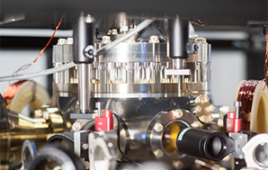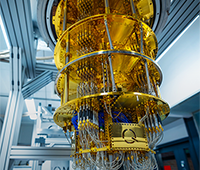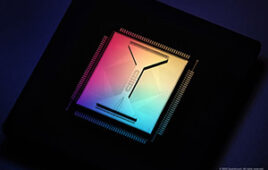 NEW YORK — ACM, the Association for Computing Machinery, (www.acm.org) has named Michael Stonebraker of the Massachusetts Institute of Technology (MIT) recipient of the 2014 ACM A.M. Turing Award for fundamental contributions to the concepts and practices underlying modern database systems. Database systems are critical applications of computing and preserve much of the world’s important data. Stonebraker invented many of the concepts that are used in almost all modern database systems. He demonstrated how to engineer database systems that support these concepts and released these systems as open software, which ensured their widespread adoption. Source code from Stonebraker’s systems can be found in many modern database systems. During a career spanning four decades, Stonebraker founded numerous companies successfully commercializing his pioneering database technology work.
NEW YORK — ACM, the Association for Computing Machinery, (www.acm.org) has named Michael Stonebraker of the Massachusetts Institute of Technology (MIT) recipient of the 2014 ACM A.M. Turing Award for fundamental contributions to the concepts and practices underlying modern database systems. Database systems are critical applications of computing and preserve much of the world’s important data. Stonebraker invented many of the concepts that are used in almost all modern database systems. He demonstrated how to engineer database systems that support these concepts and released these systems as open software, which ensured their widespread adoption. Source code from Stonebraker’s systems can be found in many modern database systems. During a career spanning four decades, Stonebraker founded numerous companies successfully commercializing his pioneering database technology work.
The ACM Turing Award, widely considered the “Nobel Prize in Computing,” carries a $1 million prize with financial support provided by Google. It is named for Alan M. Turing, the British mathematician who articulated the mathematical foundation and limits of computing.
“Michael Stonebraker’s work is an integral part of how business gets done today,” said ACM President Alexander L. Wolf. “Moreover, through practical application of his innovative database management technologies and numerous business start-ups, he has continually demonstrated the role of the research university in driving economic development.”
“The efficient and effective management of Big Data is crucial to our 21st century global economy,” said Google Senior Vice President of Knowledge Alan Eustace. “Michael Stonebraker invented many of the architectures and strategies that are the foundation of virtually all modern database systems.”
Database systems are among the most commercially successful software systems and are an essential part of the infrastructure of our global economy today. They are indispensable to business management, transaction processing, data analysis and electronic commerce, to name a few. Stonebraker is responsible for much of the software foundation of modern database systems and originated many of the key concepts of data management used in nearly all database systems today.
Stonebraker developed Ingres, proving the viability of the relational database theory. Ingres was one of the first two relational database systems (the other was IBM System R). With Ingres, Stonebraker made major contributions including query language design, query processing techniques, access methods, and concurrency control, and showed that query rewrite techniques (query modification) could be used to implement relational views and access control.
Stonebraker introduced the object-relational model of database architecture with the release of Postgres, integrating important ideas from object-oriented programming into the relational database context. Postgres extended the relational database model, enabling users to define, store and manipulate rich objects with complex state and behavior.
Concepts introduced in Ingres and Postgres can be found in nearly all major database systems today. Ingres and Postgres were well-engineered, built on UNIX, released as open software, and form the basis of many modern commercial database systems including Illustra, Informix, Netezza and Greenplum.
Stonebraker also developed lasting technical results on distributed query processing and transaction coordination protocols through development of Distributed Ingres, one of the first distributed database systems. Another highly influential project was XPRS, a parallel version of Postgres that explored the “shared nothing” approach to parallel database management. Mariposa, a massively-distributed federated database system, explored ideas, such as opportunistic data replication and decentralized query processing.
Stonebraker set the course for the design of scalable data systems as an early advocate for the adoption of the shared nothing database architecture. This approach is widely viewed as the only way to achieve and maintain scale, and is employed by nearly every major database vendor and “big data” solution today.
More recently, Stonebraker has been an advocate of the “no size fits all” approach to database systems architecture and has developed database architectures for specialized purposes. He pioneered real-time processing over streaming data sources (Aurora/StreamBase). His work on column-oriented storage architecture resulted in systems optimized for complex queries (C-Store/Vertica). He developed a high throughput, distributed main-memory online transaction processing system (H-Store/VoltDB). Stonebraker has also developed an extreme-scale data management and data analysis system for science (SciDB).
Background
Michael Stonebraker is adjunct professor at the Massachusetts Institute of Technology Computer Science and Artificial Intelligence Laboratory (MIT CSAIL) where he is also co-founder and co-director of the Intel Science and Technology Center for Big Data. Prior to MIT, Stonebraker was professor of computer science at the University of California at Berkeley for 29 years. A graduate of Princeton University, Stonebraker earned his master’s degree and his Ph.D. from the University of Michigan.
Stonebraker received the Software System award with Gerald Held and Eugene Wong for the development of Ingres (IBM’s System R was also recognized). He was the recipient of the inaugural SIGMOD Edgar F. Codd Innovations Award, and received the IEEE John von Neumann Medal. Stonebraker is an ACM Fellow and a member of the U.S. National Academy of Engineering.
Throughout his career, Stonebraker has proven the practical application of his research, founding several successful companies to commercialize his work, including Ingres (acquired by ASK and then Computer Associates), Illustra (acquired by Informix), Cohera (acquired by PeopleSoft), Streambase (acquired by Tibco), Vertica Systems (acquired by HP), VoltDB, Paradigm4 and Tamr.
ACM will present the 2014 A.M. Turing Award at its annual Awards Banquet on June 20, 2015, in San Francisco, CA.
About the ACM A.M. Turing Award
The A.M. Turing Award http://amturing.acm.org/ was named for Alan M. Turing, the British mathematician who articulated the mathematical foundation and limits of computing, and who was a key contributor to the Allied cryptanalysis of the German Enigma cipher and the German “Tunny” encoding machine in World War II. Since its inception in 1966, the Turing Award has honored the computer scientists and engineers who created the systems and underlying theoretical foundations that have propelled the information technology industry.
About ACM
ACM, the Association for Computing Machinery www.acm.org, is the world’s largest educational and scientific computing society, uniting computing educators, researchers and professionals to inspire dialogue, share resources and address the field’s challenges. ACM strengthens the computing profession’s collective voice through strong leadership, promotion of the highest standards, and recognition of technical excellence. ACM supports the professional growth of its members by providing opportunities for life-long learning, career development, and professional networking.



